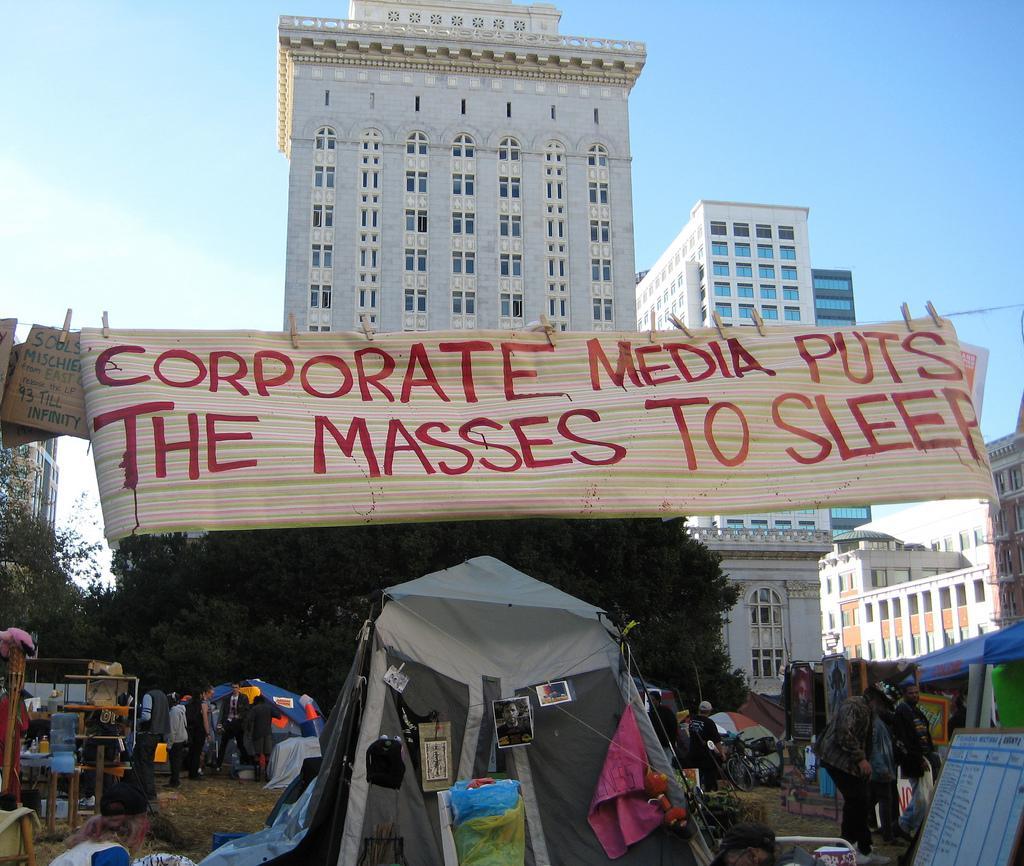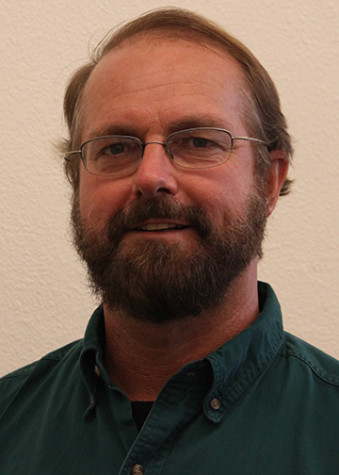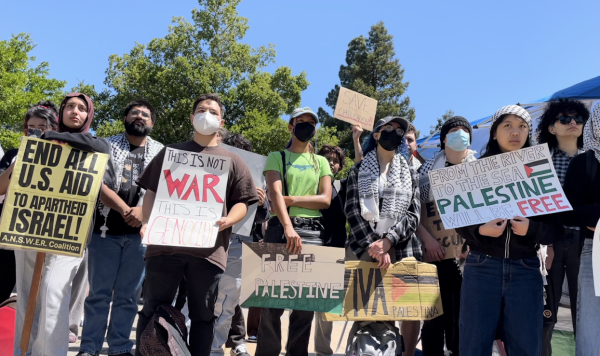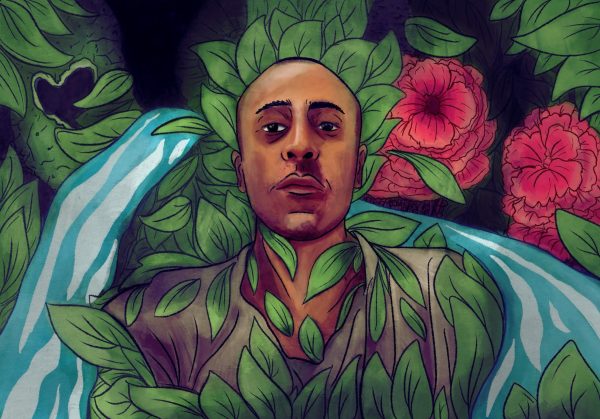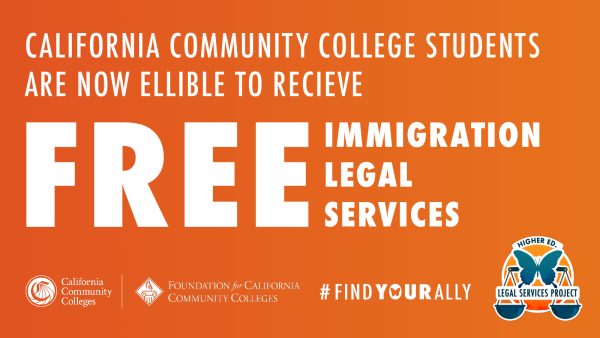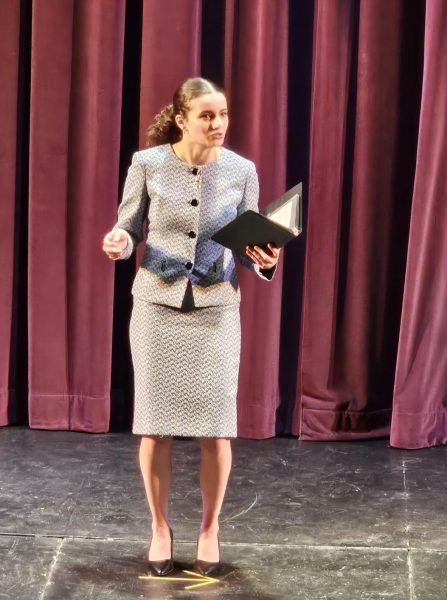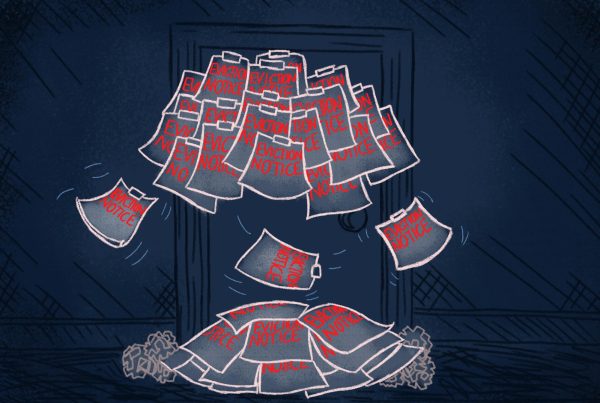‘Occupy’ rallies affect thoughts on student futures
‘Occupy’ protesters post signage, such as this one, and change it on a daily basis. There is no group decision as to what the sign will read each day. If a sign is unpopular amongst the occupiers, it will be changed sooner. (Alex Brendel / The Inquirer)
October 30, 2011
Some call it a political movement. Some call it a social movement. Within just a few weeks, what was once known as “Occupy Wall Street,” has now become an international movement with many DVC students participating in local demonstrations.
From New York to Athens, Madrid to Rome, people have set camp near banking and government infrastructure refusing to leave until their voices are heard and their demands are met.
“This is the first time I’ve slept on the street,” said DVC student Tyler Darling who attended “Occupy SF.” “I hope that protests like these will change the political culture in this country, going from electorally based to more direct activism.”
While the Occupy movement is addressing many of the societal woes that the participants attribute to corporate greed, the issue of whether or not college graduates will be able to find a job is one that weighs heavily on many students’ minds.
Robin Parker, 46, is returning to DVC after having completed a bachelor’s degree at Sacramento State University years ago. Parker sees a definite difference in current employment prospects for college graduates compared to the way things were when she graduated years ago.
Robin Parker says, “I think that there is a perception of ‘I’ll have a job waiting for me when I graduate.’ But there are no guarantees anymore; except for the guarantee that if you don’t have a bachelors (and, preferably, a master’s degree), you can’t get a decent job.”
Parker adds, “I think there is a certain naiveté amongst college students who think that their education means that they will end up with a promised job. That doesn’t exist anymore.”
“I definitely think that this is unfair,” said Hina Nabi, 19-year-old DVC student. “There are studies that show that if you go to college, you make more money. Students take out loans, thinking that they are investing in their futures. But these days, they are just getting more and more in debt. It makes other people not want to go to college because they’re like, ‘What’s the point’?”
Technical theater major Kate Vasilyeva, age 20, says, “The government is funding businesses that make things worse for us. They should be funding the schools, which train people for jobs. Instead, they gave big businesses bailouts, saying that if the big businesses went under, it was (supposedly) a slippery slope and everything else would go under. ”
History major Juan Venegas sees a direct link between the government funding corporate interests and college graduates who are unable to find employment “Americans are paying taxes, which are being used to bail out rich corporations, who take the taxes, pay their CEO’s fat bonuses, outsource jobs to other countries, create massive layoffs in America, and result in increasing our unemployment rate. It’s a rip off. And college students are wondering why they can’t get jobs.”
The Occupy Movement is a very diverse group; liberals, Ron Paul supporters, disturbed working people and radicals like Anarchists and Socialists are taking part.
“We accept everybody plain and simple and in the end, why not?” said Billy Jean.
“Occupy Oakland” which started on October 10, is even larger and more complex than Occupy SF as it has literally transformed Frank Ogawa plaza, now renamed Oscar Grant plaza by occupiers, into a commune with over 200 tents and many more inhabitants.
They have the Raheim Brown library, a child day care center, a fully operational kitchen, medical center, a garden, supply center, an amphitheater for public meetings, a projector screen for movies and 24-7 security.
As of October 17, Occupy Oakland has expanded to Snow Park with about 25 tents and is next to Wells Fargo. “New York is fighting the frontlines headfirst and we’re kicking the feet out from under them (Wall Street),” said Dax Perrault, an Occupy Oakland Snow Park organizer.
Last Saturday, Occupy Oakland had their first official rally and march with at least 1,000. Regardless of the march being unpermitted and protesters occupying a Chase Bank for five minutes, the Oakland Police Department guided traffic and were cooperative.
Occupy Oakland is not without problems. Conflict does exist between people as occupiers from different racial, cultural and political backgrounds are still trying to get to know one another and build a community.
Here’s what Shae Walsh, a gay activist, had to say about it when addressing the General Assembly: “This isn’t utopia…we are trying to undo sexism, racism and oppression here that has been ingrained into us for thousands of years.”
Actor and activist Danny Glover spoke at Oscar Grant plaza on October 15 when the progressive organization “Move On” held a rally there. “We’re sick and tired of being sick and tired and that’s why we here,” said Glover. “We’re not only talking about taking back our government, taking back our democracy, we are also talking about taking back our humanity.”





































































